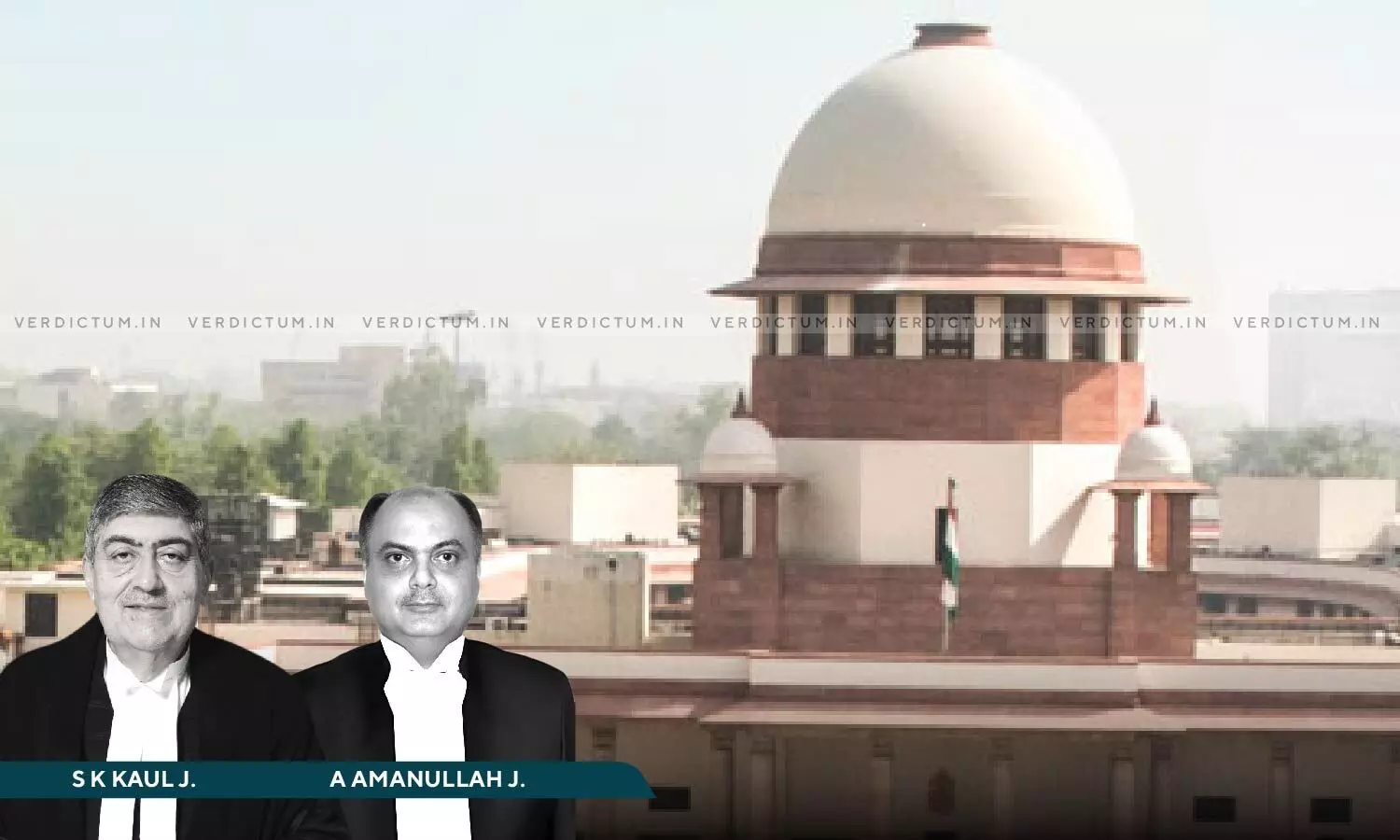
Statutory Restriction On Suit During Specified Period For Eviction Does Not Bar Filing Of Suit: SC Affirms Order To Evict Tenant In 38-Year-Old Case
 |
|The Supreme Court has held that limitation of five years specified in Section 14(3) of the Rajasthan Premises (Control of Rent and Eviction) Act, 1950 does not bar the institution of the suit itself when the suit was decided after said five years. The Court held that "We opine that this passage of time beyond the period of five years would wash away the initial impediment against the suit".
The Court was dealing with an appeal challenging the order of a Division Bench of the High Court which had taken an opposite view, on a reference by a single judge of the Court. The Apex Court also directed the tenant to vacate the property, instead of remitting the matter back to the High Court in view of the long pendency of the case.
The case for disputed property has been going on for 38 years with various appeals before reaching the Apex Court.
A Two Judge Bench headed by Justice Sanjay Kishan Kaul and Justice Ahsanuddin Amanullah held that “We are thus of the view that the objective of Section 14(3) of the said Act, being the safeguarding of the tenant for five years, was subserved by the proceedings going on for the requisite period of time and beyond it within which the tenant could not have been evicted. As noticed, in fact the proceedings have gone on for 38 years, which itself is extraordinary.”
The Court further added that “We may also take note of a subsequent development which is that the said Act itself has been abrogated in the year 2001, with a new statute coming into force, i.e. The Rajasthan Rent Control Act, 2001, which does not create any similar bar. We thus unhesitatingly allow the appeal and set aside the judgment of the High Court.”
AOR Anuj Bhandari appeared for the Appellant while Senior Advocate Sushil Kumar Jain appeared for the Respondent.
In the case, the Appellant purchased a property in Jaipur which was already rented to the Respondent. The Appellant filed a suit for eviction before the Additional Civil Judge (ACJ) which was dismissed for not being in accordance with Section 14(3) of the Rajasthan Premises (Control of Rent and Eviction) Act, 1950 (hereinafter referred to as ‘the said Act’).
Section 14(3) of the said Act provides for a period of 5 years wherein the tenant could not be evicted from a commercial property. The Appellants challenged the order of ACJ to Additional District Judge (ADJ) who ruled in favor of the Appellants. It was again challenged before a Single Judge Bench of the High Court who in turn referred the matter to a Division Bench of the High Court in view of divergent judgments on the issue. The Division Bench ruled in favour of the Respondent. Thereby, the Appellant approached the Apex Court challenging the order of the Division Bench.
The Supreme Court on the interpretation of Section 14(3) of the said Act said that “In order to analyze the expression used in Section 14(3) of the said Act, we think it is appropriate to consider the objective of this provision. This provision is for the protection of a tenant. The objective is that from the date a tenant acquires a right, he must have a right to continue in the premises for a period of five years, subject to his fulfillment of the terms and conditions of the lease.”
Coming to the case, the Apex Court held “Whether the expression used is ‘shall lie’ or ‘be entertained’ would really make no difference. The objective is to create an impediment in the institution and trial of the suit for a period specified under the said Act. We are also armed with the extraordinary power under Article 142 of the Constitution of India to do absolute justice inter se the parties. We are thus of the view that the decree of eviction passed by the first appellate court dated 18.3.2004 should be affirmed and the respondent be asked to hand over vacant and physical possession of the tenanted premises on or before 30.09.2023, and to call upon the respondent to file an undertaking in order to avail of the benefit for further occupation till 30.9.2023 within two weeks.”
Accordingly, the Supreme Court allowed the Appeal.
Cause Title: Ravi Khandelwal v. M/S Taluka Stores [Neutral Citation 2023 INSC 615]